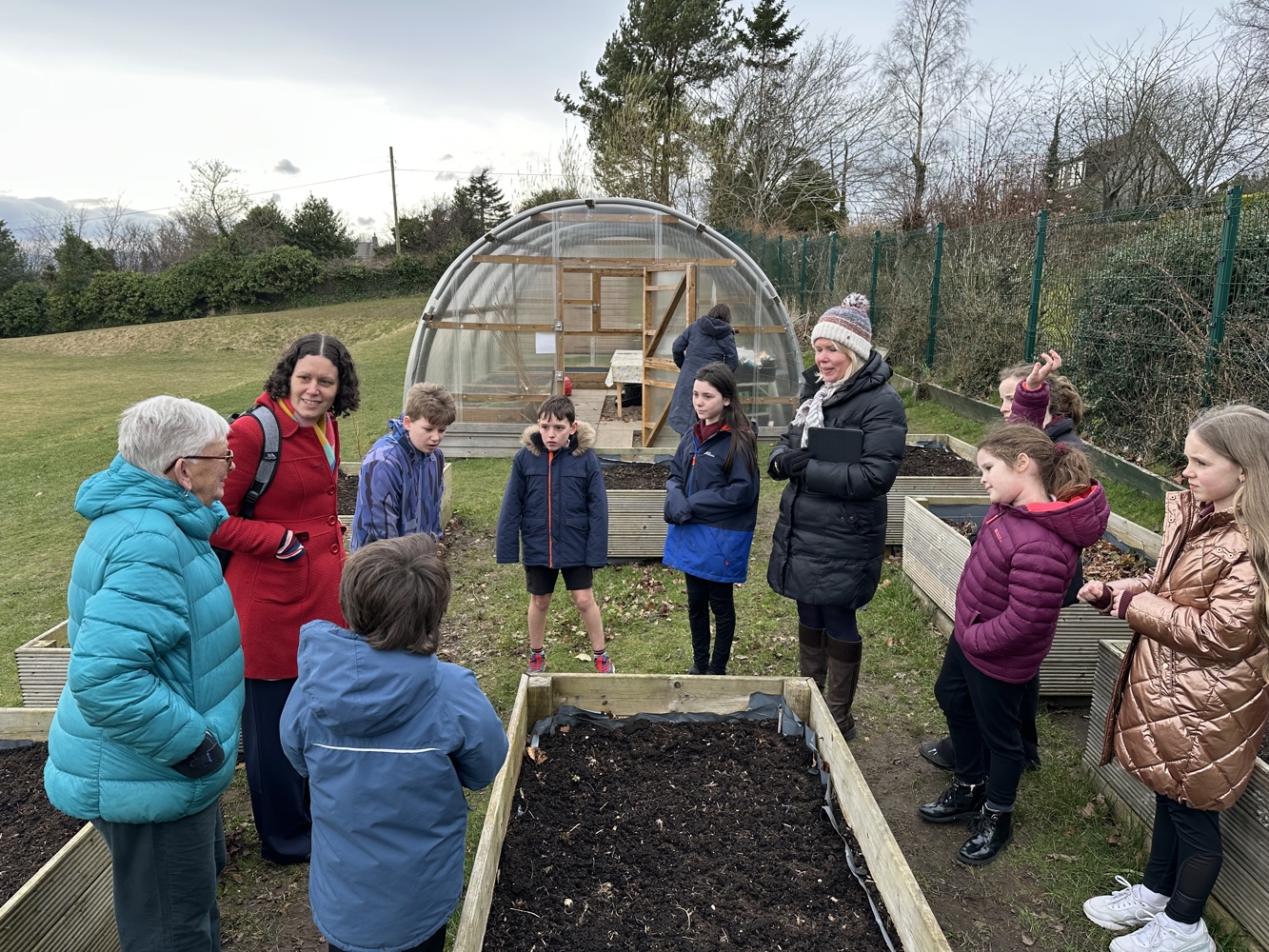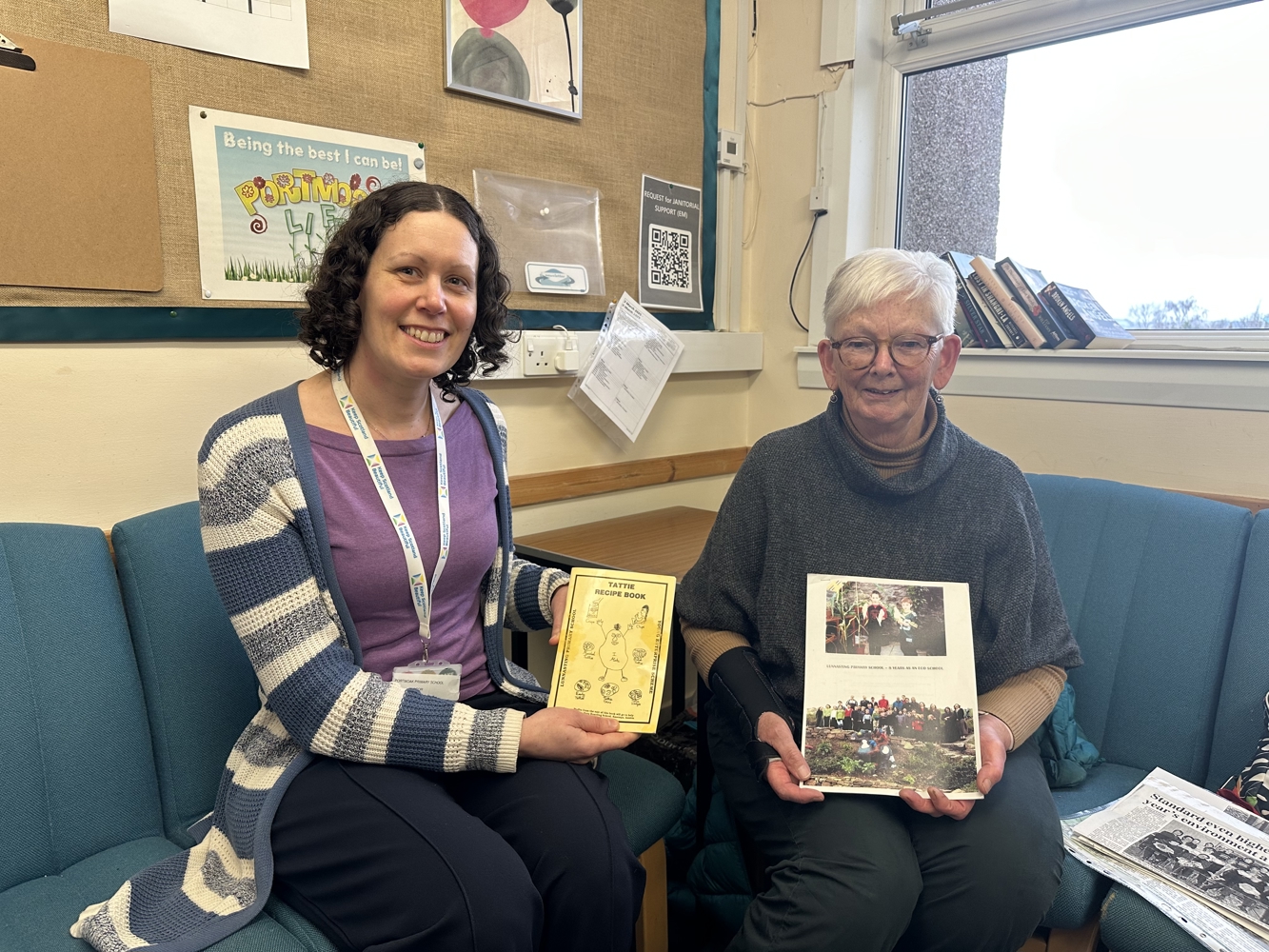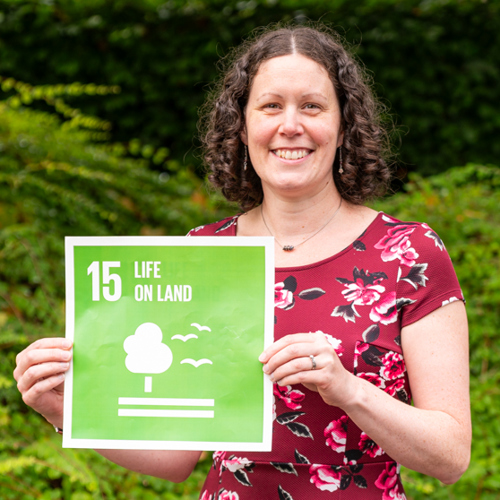As our Eco-Schools 30th anniversary celebrations continue, we were honoured to speak with Norma Smith, who was headteacher of Lunnasting Primary School, the first school in Scotland to achieve an Eco-Schools Green Flag in 1995. We also heard from two former members of #TeamKSB about their own Eco-Schools experience.

Can you tell us about your experience of your first Green Flag and how you achieved it?
I saw the programme come in and I hadn’t long been the head teacher of Lunnasting and it seemed to fit with the programme of what we wanted to be achieving so we went along with whatever Eco-Schools asked of us. I remember there was a programme about litter and recycling and I can’t remember what the third one was – there were just three topics in those days. That was the same for two or three years afterwards and then we had to renew it every two years.
How did the kids enjoy the programme and did they take it onboard as they grew up?
I think they did. I think sometimes they laugh about it, all the things we made them do as part of Eco-Schools. There’s one or two I keep in touch with and I think the parents as well did get very involved and like to see what is still happening in the school.
It’s 30 years on and the kids are still clearly as involved as they were.
The children at this school (Portmoak) are still very involved, what I’m doing here is a very small part – I just do bits of gardening with them, grow vegetables and flowers and help with the artwork that usually has some environmental them – but the children are so good. When we have the judges here for Beautiful Scotland or Britain in Bloom they’re just blown away by the response they get from the children. They’re so articulate about environmental issues.
What impact has Eco Schools had since your involvement in the programmes?
I think a lot do take things home to their parents and then parents get involved. Kids here take tatties home and parents will help them cook a recipe. We’ve had all kinds of interesting things cooked and they’ll send us a picture of what they’ve been making.
Have you learned anything you didn’t know before you got involved?
I’ve always been interested in environmental things. We’ve retrofitted our house with solar panels, a heat pump and we have a plug for our electric car. I’ve become more eco as the time has went on but that’s also saved us money! I can definitely say the more things we’ve added the less it has cost us so it’s been worth our while.
How has environmental action in schools changed over the years?
Eco-Schools – when we started – was just one or two schools involved and now you can see the whole country is. I’ve even been abroad and seen Eco-Schools flags in places like Madeira.
I gained new skills and confidence while on Eco-Committee including public speaking as we had to give all school assembly feedback, which set me up well to further develop this skill as I grew up. I would highly recommend joining Eco-Committee as it will open up access to new skills and knowledge as well as being a fun and worthwhile activity.
Arlo Sims, former #TeamKSB member
I loved being able to make a change in my immediate environment. When you're at school you can easily feel quite helpless hearing about everything going on in the world and climate change, but being in the Committee meant I felt like I was making some small difference. I would definitely recommend any young person to get involved in their school's Eco-Committee. It's a great way to turn any worries you might have about the climate into positive action and make a change around your school. Having the opportunity to connect with your peers and pupils from other schools through things like the Eco Awards is also a big plus!
Natalia Barbour, former #TeamKSB member
You were on a trip to South Africa. Could you tell us more about that?
We entered a competition with the World Wildlife Fund to do a project. There was one school from Scotland, England, Ireland and Wales and our project was to put a wind generator up in the school grounds and a trip to South Africa. I went with a pupil and she was a very good ambassador for the school. I still keep in touch with her and she’s doing work with school children outdoors.
So we went to an environmental conference in South Africa, they had a place called the water dome which had the most amazing examples of what you could do to get water out of the ground in places where there was drought. They also had bicycles with solar panels on the back, and that was to take vaccines to villages because they had to be kept cool. Such a simple answer to a problem they had, so it was very interesting to see children use these techniques to solve problems.
Why do you think it’s worthwhile for schools and nurseries to take part in Eco-Schools?
I think I’m a bit out of touch with the current curriculum at the moment except for seeing what my grandchildren are doing at school but I do know it fits the current curriculum of being articulate, being knowledgeable, being confident and able to communicate. The children take all these examples and do it in a very meaningful way.
We have almost 900 schools with Green Flags. How do you feel looking back 30 years and being the first and how do you reflect on where that’s taken the school?
I feel very proud that we were the first. You can probably write that on my grave: "I was the first!"
It’s nice to see it carrying on and having grown so much. I don’t think these things mattered so much 30 years ago, I think people see that it does now. I think people are more aware of environmental issues in general, especially in this country. It definitely has to be part of the curriculum.

Eco-Schools and Young Reporters for the Environment are part of Climate Action Schools, our framework of education initiatives to support Scotland’s educators, young people and children to progress Learning for Sustainability and climate change education.
Our Climate Action Schools programme, funded by the Scottish Government, provides a positive driver and demonstrator for schools towards achieving Target 2030.
We support the 



